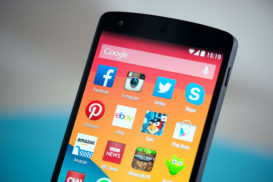The MamaBear App offers several benefits as a family locator for iPhone and other iOS powered Apple devices. The most popular MamaBear feature is, quite simply, locating family.
The MamaBear family locator for iPhone allows families to locate each other quickly and efficiently.
This can help both day-to-day parenting as well as during family outings and vacations. Parents and kids can both save themselves time and trouble by using the MamaBear app to communicate their location. Parents can use the app to check on the child’s location at the tap of the app and can selectively share their own location with their children when they choose. Children can check in with parents and notify them of a variety of needs and situations with a simple three button interface.
Families of all sizes can benefit this spring and summer from the MamaBear family locator features and alerts for iPhone. When parents can readily locate their children across a large area, it opens up a wealth of options on vacations and family trips. Parents can allow children a lot more freedom on playgrounds and parks, as well as on larger trips like beach vacations and amusement park visits. The GPS features and location alerts from MamaBear allow parents to watch their children’s location from a distance, and receive an alert when they have entered or left a specified location. This makes letting the kids have a little adventure that’s worry-free for parents.
When used as a family locator for iPhone, MamaBear gives children a measure of extra freedom and safety.
Children don’t need to call to check in when they have the MamaBear app. Parents simply receive alerts for programed destinations. Or children can choose to check in with parents with a single button tap, saving time and alerting parents when they have arrived somewhere new. Children can also use the one touch app to call for a ride, or alert parents of an emergency situation. This means mom and dad aren’t calling or texting often because they’re worried. We encourage parent to open up their children’s location boundaries with this new knowledge in the palm of their hands.
The MamaBear app is easy to install onto iPhones, iPads and other iOS powered devices running iOS 4.3 or later. The children’s version of the app works best on an iPhone 4 or better, which offers advanced GPS functionality that MamaBear uses for optimal results. Parents can use any web enabled iOS device to monitor children but should also use a phone with advanced GPS to effectively share their own location.
The MamaBear app is available in the App Store and can be used to track and communicate multiple children via email and push based alerts. This makes MamaBear an excellent solution for a wide range of summer activities for families of all sizes. With MamaBear, the kids can learn to grow and explore places, events and social situations while we parents maintain a watchful eye from an unprecedented distance.
The MamaBear app is also available for download on Android-powered devices in the Google Play Store.



